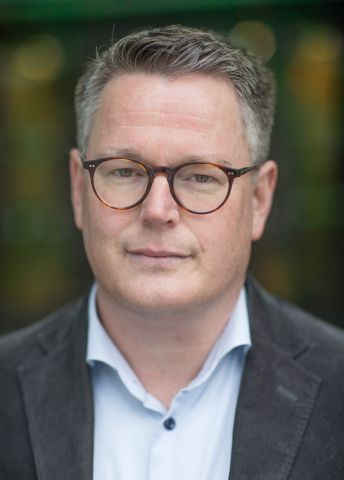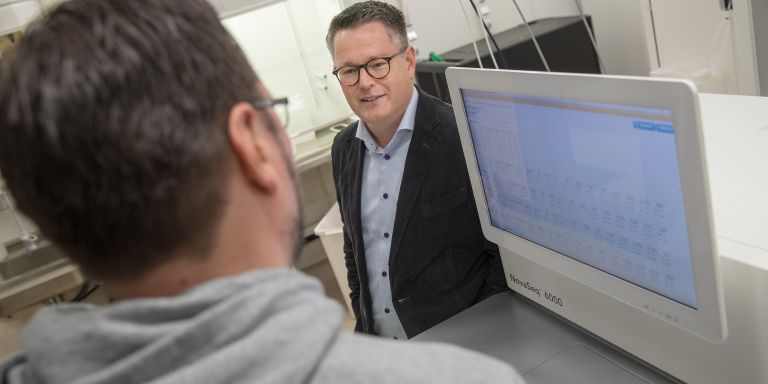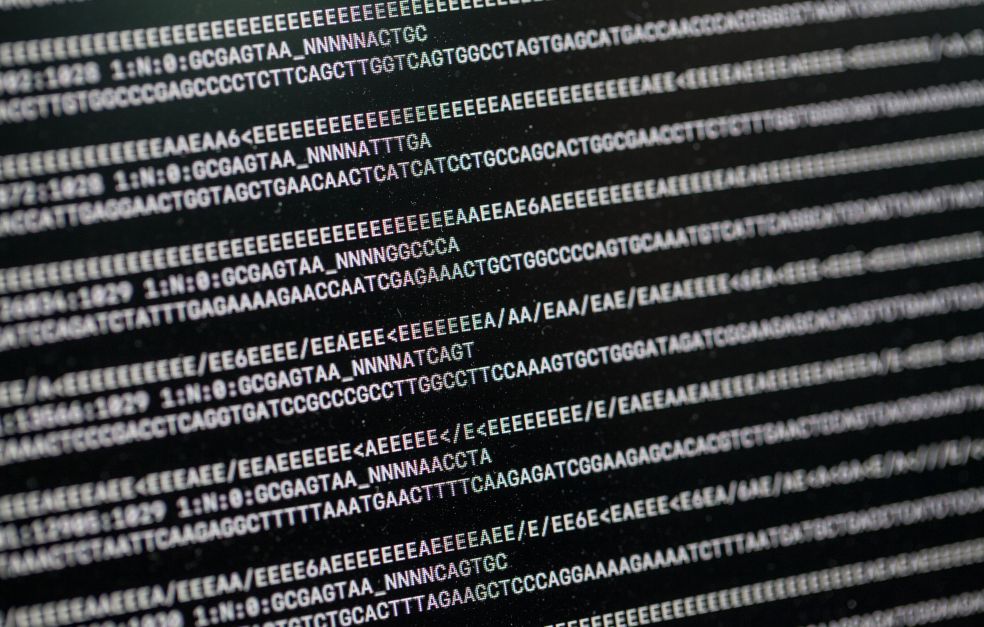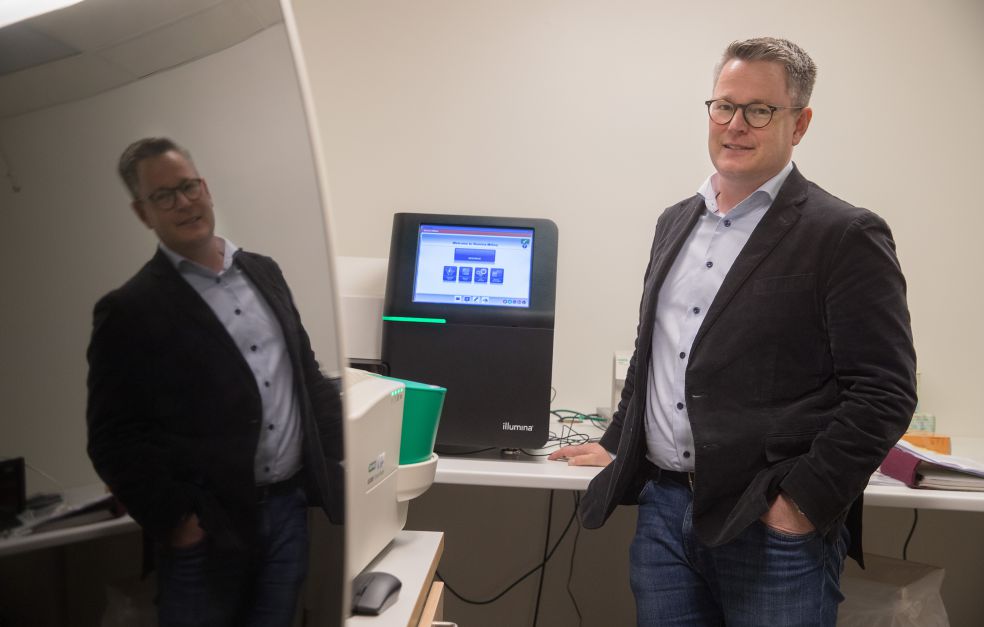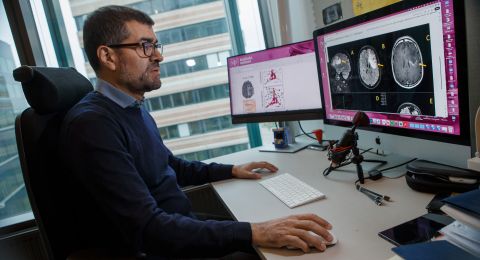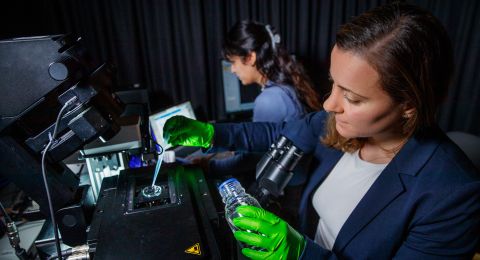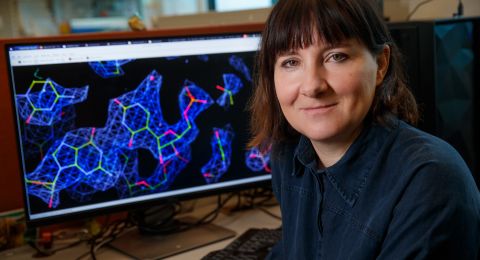Richard Rosenquist Brandell sees himself as a bridge between doctors treating patients and scientists engaged in basic research. He is applying new technologies to obtain detailed genetic knowledge about a form of cancer known as chronic lymphocytic leukemia (CLL). The aim is to create greater scope for more specific diagnoses and treatment strategies.
Richard Rosenquist Brandell
Professor of Clinical Genetics
Wallenberg Clinical Scholar 2017
Institution:
Karolinska Institutet
Research field:
Genetic markers for greater understanding and refined therapies for chronic lymphatic leukemia.
BioClinicum’s brand new research facilities are right next door to Karolinska University Hospital in Solna, north of Stockholm. Rosenquist Brandell’s office is on the tenth floor. He is a professor and consultant in clinical genetics, dividing his time between research and appointments with patients suffering from hereditary forms of cancer.
On the table beside an armchair in Rosenquist Brandell’s office lies a thick book. It is the diagnostician’s bible on classification of hematological diseases, i.e. diseases of the blood, in which genetics plays a major part. It is testimony to the complexity and challenges faced by those working in this field, although this is also what makes it fun to go to work. Rosenquist Brandell explains:
“I think the diseases are enormously interesting in themselves. I am also keen to find new technical solutions that will enable researchers to understand the diseases, and then transfer this knowledge to health care providers.”
Clinical genetics has seen revolutionary technological developments in sequencing and other fields over the past decade. The technology makes it possible to rapidly obtain detailed knowledge of patients’ genes, making it easier to diagnose diseases, predict their course and find the right treatment.
“A technological revolution is under way – one that hopefully will lead to a medical revolution. It is a privilege to be part of this fantastic journey.”
Looking for genetic markers
Rosenquist Brandell’s research primarily focuses on CLL. He was formerly based in Uppsala, but has worked at Karolinska Institutet and Karolinska University Hospital north of Stockholm since 2017.
He explains that CLL is the commonest form of leukemia. It is a deceptive disease, in that 85 percent of sufferers have experienced no symptoms when they are diagnosed.
“A third of patients are never treated, and may live with the disease for 20–30 years. Others have a more aggressive form and are in immediate need of treatment. The remainder will need treatment at some point in the future.”
As a Wallenberg Clinical Scholar, Rosenquist Brandell is using his earlier findings as a basis for further research into the causes of CLL, and how genetic markers can be used to make better prognoses, and give patients the most effective treatment.
The aim is to make a better classification of CLL at an early stage. The researchers have found a number of new subgroups with similar genetic aberrations and disease courses.
“Better classification will enable us to identify patients who have a more aggressive form that must be closely monitored, and will require treatment, and those with a milder form with a good prognosis.”
The subgroups have been found thanks to the availability of a large number of patient samples. Working with fellow researchers in Italy and Greece, Rosenquist Brandell is leading an international network involving over 20 institutions, which have collected 30,000 samples from patients in a common virtual biobank.
“The grant is truly gratifying recognition of the research we have done into chronic lymphocytic leukemia, CLL. I also think it will give a boost to research on blood disorders as a whole.”
Key role for B-cell receptors
As part of the classification, the research team has studied CLL patients’ B-cell receptors. B-cells, also known as B-lymphocytes, are white blood cells that play a central role in our immune system. The receptor activates the cell when it is exposed to antigens such as bacteria and viruses. Rosenquist Brandell has been researching on these molecules for 20 years. They have been found to be central to the onset of CLL.
Overstimulation of the B-cell likely plays a major part in the first stage of the disease. But genetic changes then occur that cause cancer to develop. Rosenquist Brandell explains:
“We have seen that groups of patients have highly similar B-cell receptors. We are now trying to use the new sequencing techniques to characterize these groups. We are examining several levels simultaneously – DNA, RNA and epigenetics, so we can understand the additional factors that trigger leukemia.”
There are now targeted drugs that turn off B-cell receptor signaling. More targeted drugs are in the pipeline, paving the way for tailored therapies.
“Most likely we will not need chemotherapy in the future – we will probably use a combination of two or three targeted therapies, which would be fantastic.”
Technology for everyone
It is a short stroll between BioClinicum and SciLifeLab, a national center for molecular bioscience. The center houses the advanced sequencing equipment that Rosenquist Brandell is using. He is responsible for a platform for diagnostics development at SciLifeLab that is helping health care specialists to benefit from the sequencing techniques. He is also heading the Genomic Medicine Sweden initiative.
“We want everyone in the country to have the same access to the new techniques and genetic knowledge on hereditary diseases, cancer, and infectious diseases. In Lund, Gothenburg, Uppsala and Stockholm we have already begun collaborating, and are sequencing some 7,000 patient samples. Our target is to reach 45,000 samples in five years’ time, which will enable us to help more patients receive the right medical care.”
Text Susanne Rosén
Translation Maxwell Arding
Photo Magnus Bergström
